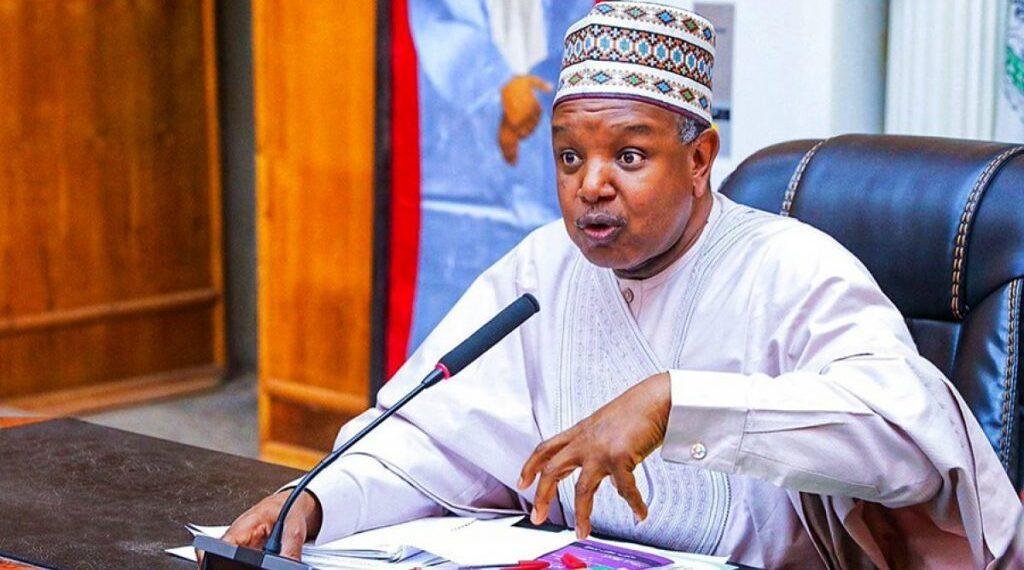Nigeria’s economy is gaining steady momentum as the country records four consecutive quarters of Gross Domestic Product (GDP) growth, according to Minister of Budget and Economic Planning, Senator Atiku Bagudu. The minister credited this progress to the bold reforms of President Bola Tinubu’s administration, which have sparked renewed investor confidence, foreign exchange stability, and fiscal discipline.
In a statement released by the Special Adviser to the President on Strategic Communications, Bayo Onanuga, Bagudu said the government’s reform-driven agenda is transforming the economic landscape and drawing global attention. “We have seen four quarters of successive economic growth, stability in foreign exchange, and appreciation by Nigerians and the international community. Rating agencies have consistently recognized the positive steps we are taking,” he said.
The minister revealed that both local and foreign investors are responding positively to Nigeria’s new economic direction, particularly in agriculture, energy, and infrastructure. Countries such as Brazil, Belarus, and Saudi Arabia are reportedly expanding their presence in Nigeria’s agricultural sector, signaling growing global confidence in the country’s long-term economic prospects.
Bagudu attributed this renewed interest to the administration’s focus on credibility, transparency, and structural reforms. “Investors want certainty. They want to know they can be paid back, that the numbers are credible, and the environment is transparent. That’s why they value the consistent GDP growth we are now achieving.”
One of the administration’s landmark achievements, according to Bagudu, is the local refining of crude oil, a feat Nigeria has not accomplished in 25 years. He praised President Tinubu’s courage in allowing the sale of crude in naira to local refiners, describing it as a game-changing policy that underlines faith in the domestic economy.
Related Articles:
- Oyerinde emerges new DG of NECA
- Nigeria’s GDP surges by 3.19% in Q2 2024, driven by services sector – NBS
- ‘GDP of 10 Nigerian states bigger than some African countries’
He also pointed to the removal of fuel subsidies and the unification of the foreign exchange market as pivotal decisions that are restoring fiscal stability and eliminating corruption. “We were losing 5% of our GDP to fuel subsidies resources that benefitted only a few. Removing it was necessary. And by reforming the forex market into a transparent, willing buyer-willing seller system, we’ve boosted revenue and private sector confidence,” Bagudu explained.
The minister noted that the 2024 and 2025 budgets are structured to balance fiscal discipline with strategic investments in key sectors like health, education, technology, infrastructure, and security. He emphasized that the significant reduction in the 2024 budget deficit sent a strong signal to the markets about Nigeria’s seriousness.
President Tinubu’s insistence on respecting the autonomy of the Central Bank, even in managing ₦22.7 trillion in inherited Ways and Means financing, was also highlighted as a testament to the administration’s rule-of-law approach and credibility on the global stage.
Bagudu praised the role of the Presidential Economic Coordination Council and the Economic Management Team, led by the Coordinating Minister for the Economy, Wale Edun, for driving coherent and impactful policies. “This is not just government-to-government coordination. The private sector is at the table. The President is the chief coordinator, and he understands the global economic context. That’s why the private sector is responding,” he said.
He acknowledged that the ongoing reforms may cause short-term discomfort but likened them to a fitness regimen essential for long-term growth. “Our economy is like a body hitting the gym. It may hurt now, but the muscles of progress are forming.”
The message from Bagudu is clear: Nigeria’s economic recovery is not just statistical, it’s structural, strategic, and gaining both local and global recognition.







